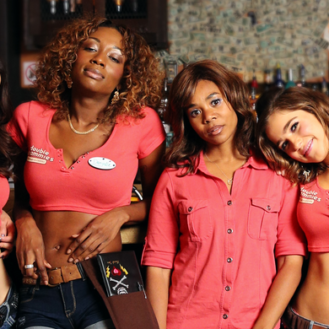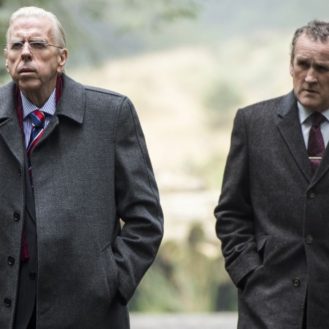By: Addison Wylie
The latest indie from Jay and Mark Duplass is a film that is very much like it’s main character Jeff, played by Jason Segel. However, that’s not a compliment towards the filmmakers.
But, on second thought, with his performance being able to hijack a film, Segel might take this as praise. He comfortably disappears within the character of Jeff and makes the new age stoner believable.
However, Jeff’s mentality works well as a character in a film and not as an overall tone to a full length feature. It’s not long until that far-out attitude eases itself into the pacing of the storytelling and into the retelling of Jeff’s eventful day. When this happens, the writing begins to sag and the pacing begins to meander. Like Jeff, the film searches for a long time to find a purpose. You can almost feel the film asking itself, “What do I want to say and why do I exist?”
As the film begins to introduce more of its characters, like Jeff’s tool-of-an-older-brother Pat (played by Ed Helms) and Jeff’s frazzled mother Sharon (played by Susan Sarandon), and we see more interactions between Jeff and these family members, a meaning begins to faintly materialize. The film wishes to show that no matter how old we are and how established and satisfied we are, that adolescence inside still lives.
After a stream of consciousness while reiterating the plot from M. Night Shyamalan’s hit Signs, Jeff comes to the realization that everything fits in the grand scheme of things. Soon after, Jeff begins to see tokens of relevance all around him. Hints that could finally tell him what his purpose in life is.
A mysterious call from an angry man looking for a guy named Kevin leads Jeff on a wild goose chase; following all these odd signs that lead to more odd signs that may or may not answer our lead’s questions.
The Dupass Brothers want laughs and enjoyment to come out of these strange occurrences. We’re supposed to smile and puzzle over whether a greater force exists or if Jeff smoked too much weed and is overanalyzing everything.
If the script introduced Jeff to audiences using stronger, more developed methods, I could certainly humour this premise and strap in for a ride. However, when Segel’s character is first offered to us making ramblings while sitting on a toilet and then shown taking a hit off a bong, I have a hard time taking this treasure hunt of meaning seriously.
I would’ve loved to have seen more development between Segel and Helms. Both are competent actors who can certainly hit lots of emotions. Instead, because of the weak acquaintance to a stoned Jeff, we see our lead as a lazy doofus. Because of an introduction where we see Pat undermining his wife’s decisions and trying to convince her that buying an expensive car was an excellent idea, we see Pat as an aggressive jerk. Not exactly two characters we really want to root for and this never changes.
However, when the problems are laid out and we find out that after a fight, Pat’s wife Linda (played by Judy Greer, who gives the best performance) might be cheating on him, we see that adolescence message in the forefront.
Pat and Jeff devise plans, hide behind walls, and act like they’re children playing a game of “cops and robbers”; of course, both are in the heat of the moment and are oblivious that they’re acting this way. Even though this message is clear during these playful scenes, we can’t fully indulge because the scene is so exaggerated and both characters are too much of polar opposites. A buddy film works best when the lead knuckleheads can agree on levels but have different ways of solving and coping. Here, we momentarily get that but overall, there’s just a lot of head butting.
When the film isn’t focused on Segel and Helms, we follow a story involving Surandon being pursued by a secret admirer. She acts professional at her workplace and takes things very seriously but as soon as Sharon finds out someone at the office has the hots for her, she immediately turns into a giggly school girl and often talks to her girl pal Carol (played well by Rae Dawn Chong) about these butterflies.
The message about relishing in that unaged adolescence resonates in this storyline as well and is most prominent during a scene where both ladies talk giddily at lunch about who the possible mystery charmer could be.
When looking at both of the stories present, it feels like two great short films have been cut and pasted together to make an underwhelming full length feature. Maybe, there would’ve been more potential and more interest if the Duplass’ had focused on making these their own projects. If that would’ve happened, we could’ve gotten more time with each character and maybe, just maybe, we could’ve felt a bit more compassion for all the players.
To give the Duplass Brothers and their film credit, the film’s greatest feat is the finale. No matter how underdeveloped the characters are and how little we care about everything in general, it’s really cool to see how everything and everyone played a pivotal role to executing this exhilarating capper. It’s best to leave details at a bare minimum.
By the end of Jeff, Who Lives At Home, we understand what the Duplass Brothers are trying to say and even though the people on screen are unlikable, we feel the actors playing them do well with the material given. But ultimately, we can’t help but feel like the dramedy missed the mark.




Be the first to comment